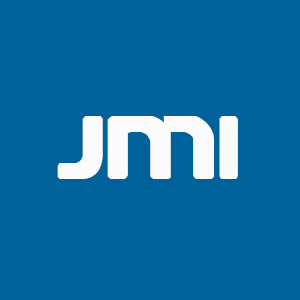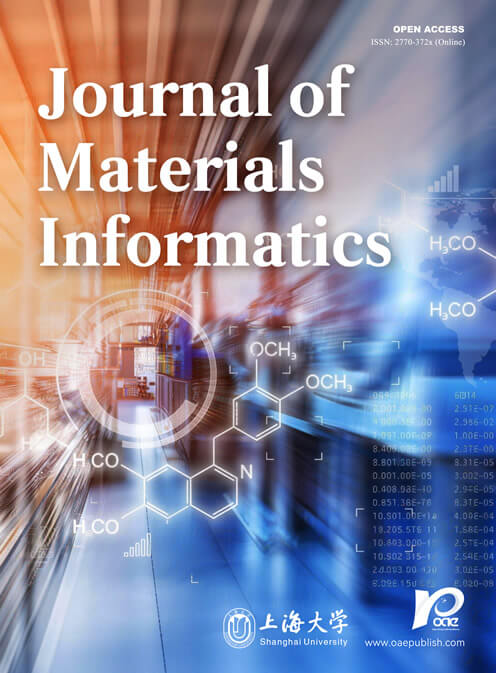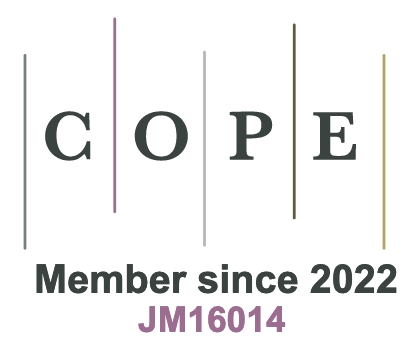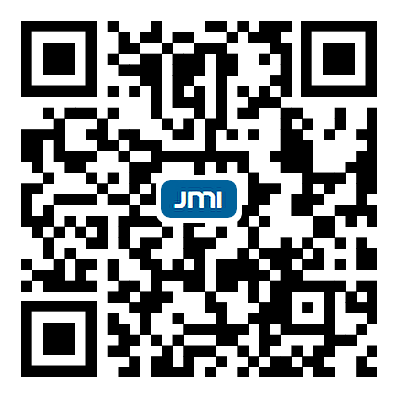REFERENCES
2. Sebastian, M. T.; Ubic, R.; Jantunen, H. Low-loss dielectric ceramic materials and their properties. Int. Mater. Rev. 2015, 60, 392-412.
3. Reaney, I. M.; Iddles, D. Microwave dielectric ceramics for resonators and filters in mobile phone networks. J. Am. Ceram. Soc. 2006, 89, 2063-72.
4. Schmidt, J.; Marques, M. R. G.; Botti, S.; Marques, M. A. L. Recent advances and applications of machine learning in solid-state materials science. npj. Comput. Mater. 2019, 5, 221.
5. Wang, A. Y.; Murdock, R. J.; Kauwe, S. K.; et al. Machine learning for materials scientists: an introductory guide toward best practices. Chem. Mater. 2020, 32, 4954-65.
6. Gomes, C. P.; Fink, D.; van, D. R. B.; Gregoire, J. M. Computational sustainability meets materials science. Nat. Rev. Mater. 2021, 6, 645-7.
7. Barr, J. A.; Lin, F.; Ashton, M.; Hennig, R. G.; Sinnott, S. B. High-throughput density functional calculations to optimize properties and interfacial chemistry of piezoelectric materials. Phys. Rev. Mater. 2018, 2, 025002.
8. Schleder, G. R.; Padilha, A. C. M.; Acosta, C. M.; Costa, M.; Fazzio, A. From DFT to machine learning: recent approaches to materials science - a review. J. Phys. Mater. 2019, 2, 032001.
9. Jain, A.; Hautier, G.; Moore, C. J.; et al. A high-throughput infrastructure for density functional theory calculations. Comput. Mater. Sci. 2011, 50, 2295-310.
10. Petousis, I.; Mrdjenovich, D.; Ballouz, E.; et al. High-throughput screening of inorganic compounds for the discovery of novel dielectric and optical materials. Sci. Data. 2017, 4, 160134.
11. Petousis, I.; Chen, W.; Hautier, G.; et al. Benchmarking density functional perturbation theory to enable high-throughput screening of materials for dielectric constant and refractive index. Phys. Rev. B. 2016, 93, 115151.
12. Umeda, Y.; Hayashi, H.; Moriwake, H.; Tanaka, I. Prediction of dielectric constants using a combination of first principles calculations and machine learning. Jpn. J. Appl. Phys. 2019, 58, SLLC01.
13. Jain, A.; Ong, S. P.; Hautier, G.; et al. Commentary: the materials project: a materials genome approach to accelerating materials innovation. APL. Mater. 2013, 1, 011002.
14. Takahashi, A.; Kumagai, Y.; Miyamoto, J.; Mochizuki, Y.; Oba, F. Machine learning models for predicting the dielectric constants of oxides based on high-throughput first-principles calculations. Phys. Rev. Mater. 2020, 4, 103801.
15. Tin Kam Ho. The random subspace method for constructing decision forests. IEEE. Trans. Pattern. Anal. Mach. Intell. 1998, 20, 832-44.
16. Gopakumar, A.; Pal, K.; Wolverton, C. Identification of high-dielectric constant compounds from statistical design. npj. Comput. Mater. 2022, 8, 832.
17. Saal, J. E.; Kirklin, S.; Aykol, M.; Meredig, B.; Wolverton, C. Materials design and discovery with high-throughput density functional theory: the open quantum materials database (OQMD). JOM. 2013, 65, 1501-9.
18. Qin, J.; Liu, Z.; Ma, M.; Li, Y. Machine learning approaches for permittivity prediction and rational design of microwave dielectric ceramics. J. Materiomics. 2021, 7, 1284-93.
19. Ouyang, R.; Curtarolo, S.; Ahmetcik, E.; Scheffler, M.; Ghiringhelli, L. M. SISSO: a compressed-sensing method for identifying the best low-dimensional descriptor in an immensity of offered candidates. Phys. Rev. Mater. 2018, 2, 083802.
20. Neil Alford Home Page. Available online: https://www.imperial.ac.uk/people/n.alford. (accessed on 2024-01-25).
21. Shannon, R. D. Dielectric polarizabilities of ions in oxides and fluorides. J. Appl. Phys. 1993, 73, 348-66.
22. Chen, X. M.; Qin, N.; Li, Y. Microstructures and microwave dielectric characteristics of Ba6-3x(Sm1-yLay)8+2xTi18O54 solid solutions (x = 2/3 and 0.75). J. Electroceram. 2002, 9, 31-5.
23. Okawa, T.; Imaeda, M.; Ohsato, H.; Harada, A. Site occupancy of Bi ions and microwave dielectric properties in Bi-doped Ba6-3xR8+2xTi18O54 (R = rare earth, x = 2/3) solid solutions. Mater. Chem. Phys. 2003, 79, 199-203.
24. A. A. Baikov Institute of Metallurgy and Materials Science. Available online: https://phases.imet-db.ru/elements (accessed on 2024-01-25).
25. Choudhary, S.; Ranjan, P.; Chakraborty, T. Atomic polarizability: a periodic descriptor. J. Chem. Res. 2020, 44, 227-34.
26. Shannon, R. D. Revised effective ionic radii and systematic studies of interatomic distances in halides and chalcogenides. Acta. Cryst. A. 1976, 32, 751-67.
27. Qin, J.; Liu, Z.; Ma, M.; Li, Y. Optimizing and extending ion dielectric polarizability database for microwave frequencies using machine learning methods. npj. Comput. Mater. 2023, 9, 1093.
28. Guo, M.; Li, Y.; Dou, G.; Lin, J. A new microwave dielectric ceramics for LTCC applications: Li2Mg2(WO4)3 ceramics. J. Mater. Sci. Mater. Electron. 2014, 25, 3712-5.
29. Zhang, J.; Zuo, R. Synthesis and microwave dielectric properties of Li2Mg2(WO4)3 ceramics. Mater. Lett. 2015, 158, 92-4.
30. Wu, J.; Huang, H. Effect of crystallization on microwave dielectric properties of stoichiometric cordierite glasses containing B2O3 and P2O5. J. Mater. Res. 2000, 15, 222-7.
31. Wang, F.; Lai, Y.; Zeng, Y.; et al. Enhanced microwave dielectric properties in Mg2Al4Si5O18 through Cu2+ substitution. Eur. J. Inorg. Chem. 2021, 2021, 2464-70.
32. Yao, G. G.; Liu, P.; Zhang, H. W. Microwave dielectric properties of Li2MgTi3O8 ceramics produced by reaction-sintering method. J. Mater. Sci. Mater. Electron. 2013, 24, 1128-31.
33. George, S.; Sebastian, M. T. Microwave dielectric properties of novel temperature stable high Q Li2Mg1-xZnxTi3O8 and Li2A1-xCaxTi3O8 (A = Mg, Zn) ceramics. J. Eur. Ceram. Soc. 2010, 30, 2585-92.
34. Wu, S.; Chen, D.; Jiang, C.; Mei, Y.; Ma, Q. Synthesis of monoclinic CaSnSiO5 ceramics and their microwave dielectric properties. Mater. Lett. 2013, 91, 239-41.
35. Du, K.; Song, X.; Li, J.; et al. Optimised phase compositions and improved microwave dielectric properties based on calcium tin silicates. J. Eur. Ceram. Soc. 2019, 39, 340-5.
36. Došler, U.; Kržmanc, M. M.; Suvorov, D. The synthesis and microwave dielectric properties of Mg3B2O6 and Mg2B2O5 ceramics. J. Eur. Ceram. Soc. 2010, 30, 413-8.








